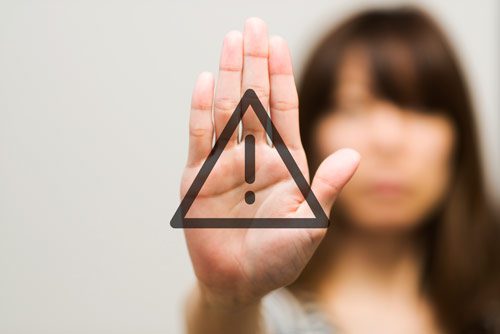
When Does a Relapse Begin?
Anyone in recovery from a drug or alcohol addiction faces the possibility of experiencing a relapse, sometimes referred to as a “slip.” But a relapse does not start when you have a drink or take a drug. Relapse is a slow process that actually begins long before the actual act of drinking or using takes place. It happens gradually with changes in feelings, attitudes, and behaviors.
Warning Signs of a Potential Relapse
If you want to avoid a relapse and achieve long-term sobriety, recognizing the warning signs of relapse is essential. Once you know what they are and can identify them, you can take the needed actions to prevent them from escalating to a full-blown relapse.
Overreacting to Stress
The main reason most people relapse is stress. In fact, there is a good chance you, like many others, used alcohol or drugs to try to cope with the stress of everyday life. If you feel stress building up in your life, it is a warning sign of relapse. Stress could be the cumulative result of many little worries or result from a major life change. Stress can be caused by a relationship problem, an issue at work, financial worries, or adjusting to everyday life after treatment. You find yourself overreacting to the stressful situations. You may begin experiencing mood swings or getting stuck in negative thinking.
Change in Attitude
You have been an active participant in your recovery program. But for some reason, you begin to feel apathetic about it. You may start to miss meetings, not call your sponsor every day, or not participate in other recovery-related activities. You begin to doubt the whole recovery process and its effectiveness. You may feel uneasy without knowing exactly why.
Changes in Behavior
Often sudden changes in behavior are warning signs of relapse. Isolating yourself and avoiding your sober support system are typically signs of danger. You may lose interest in hobbies or other activities you enjoyed doing that you began while in recovery. You may find yourself changing your daily routine, moving away from the healthy behaviors you developed in early recovery back to the compulsive behaviors of addiction.
Loss of Daily Structure
You begin to lose your structure in your everyday routine. Your schedule becomes very haphazard. You stop eating and sleeping at regular times. Sometimes you oversleep, and sometimes you get no sleep at all. There are times you feel rushed, overwhelmed, and overburdened and other times you feel bored and restless. Keeping social plans and appointments is getting more and more difficult. You find you are not able to make decisions or follow through with plans. You are unable to do things that need to be done. You experience feelings of fear, frustration, tension, and anxiety.
Increased Feelings of Depression
You begin to feel depressed more often. The depression lasts longer and becomes worse over time. It begins to interfere with your life, and other people notice how it is affecting you. It is typically most severe during times that aren’t structured. You easily become irritable with other people. You may complain that no one understands what you are going through or that no one cares.
If You Need Help
Addiction is a chronic brain disease, and anyone in recovery faces the possibility of relapse regardless of how long they have been sober. Many people find it difficult to get back on track to their recovery once they have used substances again. But it is essential to put aside these feelings of failure and get help as quickly as possible. Relapse is not the end. It is a chance to revisit your treatment plan and reconnect with your goals and priorities.
If you or a loved one is in the grasp of relapse or struggling with addiction and seeking help for the first time, help is available. At English Mountain Recovery, located in the Smoky Mountains of Tennessee, we can help you overcome your addiction. Give us a call and reinvigorate your recovery journey.
 To learn more about programs offered at English Mountain Recovery, alcohol rehab near Knoxville, TN, call and speak with someone today at (877) 615-8569. We are ready to help you or your loved one recover.
To learn more about programs offered at English Mountain Recovery, alcohol rehab near Knoxville, TN, call and speak with someone today at (877) 615-8569. We are ready to help you or your loved one recover.About the Author: 
Terry Hurley is a retired educational professional and freelance writer with more than fifty years of experience. A former reading specialist and learning center director, Terry loved her years working with children in the educational field. She has written extensively for print and online publications specializing in education and health issues. For the last six years, her writing focus has been on addiction and mental health issues.




